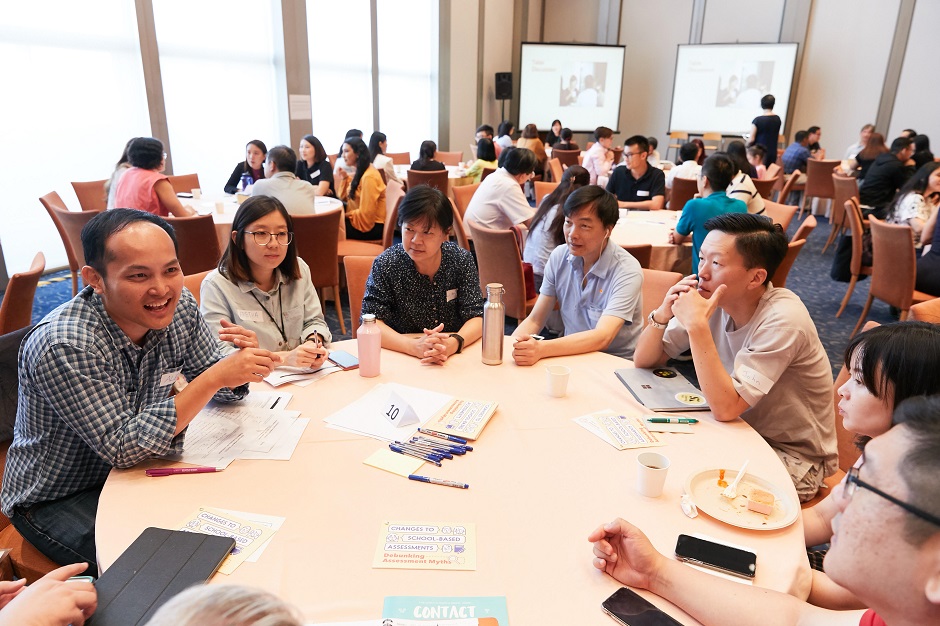It is all too easy to stick to what we know: Test scores are a convenient means to report a student’s attainment of knowledge and skills. But there’s more to assessments than marks, as we heard from the participants at the recent “What’s Your Take?” public engagement session on Saturday, 25 May.
The topic was school-based assessment. Mrs Chua Yen Ching, Deputy-Director General of Education (Professional Development), and Ms Chan Wan Siong, Principal of Damai Secondary, had a chat with parents and members of the public interested to learn more about the recent changes.
Now, with primary and secondary schools reducing the number of tests and examinations, parents have to look at other ways to find out how well their children are doing. This includes the way in which students receive feedback on their work, which may not involve the teacher giving a mark or letter grade.
If you’re a parent looking to understand how to support your child in light of the, here are some tips that we gathered from fellow parents and educators at the session.
Talk to your child about their learning experience
Mr Damien Quek, father of two boys, works in a government agency
“The attitude towards learning is most important. Grades aren’t the whole thing. It is more important my child understands what is being taught.”

Mrs Chua Yen Ching, Deputy-Director General of Education (Professional Development) (pictured)
“As a parent, it is very important that our first questions to our children when they reach home, or when we come back from work, is not ‘Have you finished your homework?’ or ‘What did you get for your maths test?’ Those should be our last questions! Our first questions should be ‘How are you today?’ or ‘Did you make good friends today?’ or ‘What good questions did you ask today?’ so that they know we are interested in them, and not just in their studies.”
Be comfortable with fewer formal tests; more teacher feedback

Ms Chan Wan Siong, Principal of Damai Secondary (pictured)
“Commonly, there are the pen-and-paper class tests, but assessment can be in the form of project work or group work; can be in the form of presentation (oral skills); can be going out to do investigative work for science and music – getting together to do a little cheer and do some musical piece. Teachers make it clear to students what part or aspect of the work will be incorporated as part of the weighted assessment (if it is to be counted as weighted assessment).”
Mr Oliver Tian, father of three
“Feedback can be more complex to understand versus a simple number or grade. A lot depends on the child’s learning journey thus far, and what he or she has gotten used to.”
Holistic development is as important as factual knowledge
Ms Carol Lim, mother of four, works in a tech start-up
“Some of my friends studied STEM courses, but are investment bankers today. It’s the argumentative skills they learned that helped, not so much the content.”
Mrs Chua Yen Ching
“Not everything that can be measured is important and not everything that is important can be measured. The 21st Century Competencies (underlying all our work) are those things that are important, but difficult to measure. They are important. That’s why we free up a bit more time by re-calibrating school-based assessments. This gives teachers time to do things such as collaborative work in the classroom, which may be difficult to measure but are extremely important.”
These conversations were part of the discussion at MOE’s public engagement session, ‘What’s Your Take: Assessments – Boon or Bane?” on 25 May 2019. If you would like to be informed of future ‘What’s Your Take?’ sessions, email us at engagement@moe.gov.sg




.jpg)
.jpg)
